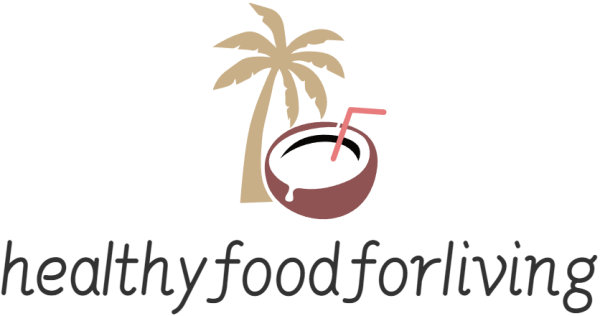Vitamin D has garnered significant attention in recent years, and for good reason. Often referred to as the “sunshine vitamin,” it is essential for various bodily functions, including the maintenance of healthy bones, a strong immune system, and overall well-being. Despite its importance, a large proportion of the global population suffers from vitamin D deficiency due to factors such as limited sun exposure, dietary habits, and lifestyle changes. This essay will explore the critical role of vitamin D in human health and provide practical dietary strategies to help you obtain sufficient levels of this essential nutrient.
The Role of Vitamin D in the Body
Vitamin D is a fat-soluble vitamin that acts more like a hormone than a traditional nutrient. It plays a vital role in numerous physiological processes. Here are some of the key functions of vitamin D:
1. Bone Health and Calcium Regulation
One of the most well-known functions of vitamin D is its role in calcium regulation and bone health. It helps the body absorb calcium from the diet, which is necessary for building and maintaining strong bones and teeth. Without adequate vitamin D, calcium absorption is impaired, leading to weakened bones, increased risk of fractures, and conditions like osteoporosis in adults and rickets in children. By regulating calcium and phosphorus levels in the blood, vitamin D ensures that the skeletal system remains robust and healthy.
2. Immune System Support
Vitamin D is also crucial for a properly functioning immune system. It modulates both the innate and adaptive immune responses, aiding the body in defending against infections. Studies have shown that adequate vitamin D levels can reduce the risk of acute respiratory infections, including the flu. There is also ongoing research exploring the link between vitamin D deficiency and an increased risk of autoimmune diseases, such as multiple sclerosis and type 1 diabetes.
3. Mood and Mental Health
Emerging research suggests that vitamin D may have a role in mental health and emotional well-being. Some studies indicate that low levels of vitamin D are associated with an increased risk of mood disorders, such as depression and seasonal affective disorder (SAD). While the exact mechanisms are still under investigation, vitamin D receptors are present in areas of the brain linked to mood regulation, suggesting a potential influence on mental health.
4. Cardiovascular Health
Vitamin D also contributes to cardiovascular health. It helps regulate blood pressure by influencing the renin-angiotensin system, which controls blood vessel constriction. Additionally, vitamin D has anti-inflammatory properties that can protect the lining of blood vessels, potentially reducing the risk of heart disease. However, more research is needed to fully understand the extent of vitamin D’s impact on cardiovascular health.
Sources of Vitamin D: Sunlight and Beyond
The human body can produce vitamin D naturally when the skin is exposed to sunlight, specifically ultraviolet B (UVB) rays. This is why it is often called the “sunshine vitamin.” However, factors such as geographic location, season, skin pigmentation, age, sunscreen use, and time spent indoors can all influence the amount of vitamin D your body produces from sunlight.
While sunlight exposure is the most natural way to obtain vitamin D, it is not always practical or sufficient, particularly in regions with limited sunlight during certain times of the year. Therefore, dietary sources and supplements become important contributors to maintaining adequate vitamin D levels.
Getting Vitamin D from Food: What to Include in Your Diet
Few foods naturally contain vitamin D, which makes it challenging to get enough from diet alone. However, there are still some rich dietary sources you can incorporate into your meals to help boost your vitamin D intake. Here are some of the best food options:
1. Fatty Fish
Fatty fish, such as salmon, mackerel, sardines, and trout, are among the richest natural sources of vitamin D. Just a 3.5-ounce (100-gram) serving of salmon can provide about 450–600 IU (international units) of vitamin D, which is more than half of the daily recommended intake for most adults. Including fatty fish in your diet a few times a week can significantly contribute to your overall vitamin D levels.
2. Cod Liver Oil
Cod liver oil is a traditional source of vitamin D that has been used for generations. It is one of the most concentrated natural sources of vitamin D, with a single teaspoon containing about 450 IU. In addition to vitamin D, cod liver oil is also rich in omega-3 fatty acids, which support heart and brain health. However, because it is highly potent, it is essential to use it in moderation to avoid excessive intake.
3. Egg Yolks
Egg yolks are another natural source of vitamin D, though they contain less than fatty fish. One large egg yolk provides about 40 IU of vitamin D. Free-range or pasture-raised eggs generally have higher vitamin D content than those from conventionally raised chickens, as the latter are often exposed to more sunlight. Including eggs as part of a balanced diet can provide a modest boost to your vitamin D intake.
4. Fortified Foods
Because natural food sources of vitamin D are limited, many countries fortify certain foods to help people meet their daily vitamin D requirements. Common fortified foods include:
- Milk and Plant-Based Milk Alternatives: Cow’s milk is often fortified with vitamin D, providing around 100 IU per cup. Many plant-based milk alternatives, such as almond, soy, and oat milk, are also fortified to match the vitamin D content of cow’s milk.
- Breakfast Cereals: Some breakfast cereals are fortified with vitamin D, offering an easy way to incorporate the nutrient into your morning routine. However, it’s essential to choose cereals that are low in added sugars and high in fiber for a healthier start to the day.
- Orange Juice: Certain brands of orange juice are fortified with vitamin D, providing about 100 IU per 8-ounce serving. While it can be a convenient option, it’s best consumed in moderation due to its natural sugar content.
- Yogurt and Cheese: Some dairy products, like yogurt and cheese, may also be fortified with vitamin D, though the levels vary depending on the brand and type of product.
5. Mushrooms
Mushrooms, particularly those exposed to ultraviolet (UV) light, are a plant-based source of vitamin D2. Wild mushrooms like maitake and chanterelle, as well as UV-exposed varieties such as portobello and white button mushrooms, contain varying amounts of vitamin D. While vitamin D2 is not as potent as the vitamin D3 found in animal sources, including mushrooms in your diet can still provide a beneficial boost.
Meeting Your Vitamin D Needs
The recommended daily intake of vitamin D varies depending on age, sex, and life stage. Generally, adults require about 600–800 IU per day, while older adults, pregnant women, and individuals with limited sun exposure may need higher amounts. While obtaining vitamin D through diet is essential, it can still be challenging to meet the recommended daily intake from food alone. In such cases, a healthcare provider may recommend vitamin D supplements to help maintain optimal levels.









































